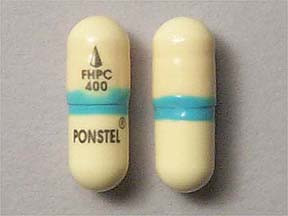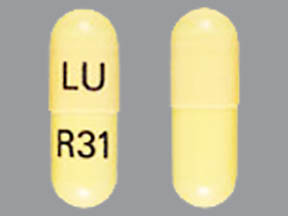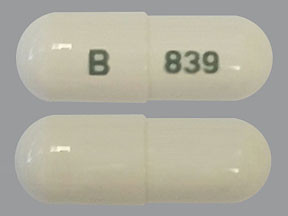MEFENAMIC ACID - ORAL
PHONETIC PRONUNCIATION: (meff-en-AM-ick)
COMMON BRAND NAME(S): Ponstel
GENERIC NAME(S): mefenamic acid
Uses
USES: Mefenamic acid is used for the short-term treatment of mild to moderate pain from various conditions. It is also used to decrease pain and blood loss from menstrual periods. Mefenamic acid is known as a nonsteroidal anti-inflammatory drug (NSAID).
How to use MEFENAMIC ACID - ORAL
HOW TO USE: Read the Medication Guide provided by your pharmacist before you start using mefenamic acid and each time you get a refill. If you have any questions, consult your doctor or pharmacist. Take this medication by mouth, usually 4 times a day with a full glass of water (8 ounces or 240 milliliters) or as directed by your doctor. Do not lie down for at least 10 minutes after taking this drug. If stomach upset occurs, take this medication with food or milk. Do not take mefenamic acid with antacids unless directed by your doctor. Certain antacids may change the amount of mefenamic acid absorbed by the body. Dosage is based on your medical condition and response to therapy. To reduce your risk of stomach bleeding and other side effects, take this medication at the lowest effective dose for the shortest possible time. Do not increase your dose, take it more frequently, or take it for a longer time than prescribed. This medication usually should not be taken for more than 7 days at a time. If you are taking this drug on an "as needed" basis (not on a regular schedule), remember that pain medications work best if they are used as the first signs of pain occur. If you wait until the symptoms have worsened, the medicine may not work as well. If you are using this medication for painful periods, take your first dose as soon as your period starts or pain begins. Usually, you will only need to take it for the first 2 to 3 days of your period. Inform your doctor if your pain persists or worsens or if you develop new symptoms.
Side Effects
Precautions
Interactions
Overdose
Images

- color
- yellow
- shape
- oblong
- imprint
- PAD, 195

- color
- yellow
- shape
- oblong
- imprint
- BP, 629

- color
- ivory
- shape
- oblong
- imprint
- logo and FHPC 400, PONSTEL

- color
- ivory
- shape
- oblong
- imprint
- LU, R31
Reviews
Faq for MEFENAMIC ACID - ORAL
Mefenamic Acid is a medication that belongs to a class of drugs called nonsteroidal anti-inflammatory drugs (NSAIDs). It works by reducing hormones that cause inflammation and pain in the body.
Mefenamic Acid is commonly used to relieve mild to moderate pain caused by various conditions, including menstrual cramps, arthritis, and other inflammatory conditions.
The recommended dosage of Mefenamic Acid varies depending on the condition being treated and individual factors. It is important to follow your healthcare provider's instructions and not exceed the prescribed dose.
Common side effects of Mefenamic Acid may include stomach upset, diarrhea, dizziness, headache, and drowsiness. Serious side effects such as allergic reactions and liver problems are rare but possible. Contact your doctor if you experience any concerning side effects.
Mefenamic Acid should be used with caution during pregnancy, especially during the third trimester, as it may cause harm to the unborn baby. It is generally recommended to avoid using this medication while breastfeeding.
Yes, Mefenamic Acid can interact with certain medications, including blood thinners, diuretics, and certain antidepressants. It is important to inform your healthcare provider about all the medications you are taking to prevent any potential drug interactions.
Mefenamic Acid is usually taken as needed for pain relief. It may start working within 30 minutes to 1 hour after taking it, but the full effect may take a few days of regular use.
Mefenamic Acid is generally not recommended for children under 14 years of age unless specifically prescribed by a healthcare professional.
Mefenamic Acid should be used with caution in individuals with a history of stomach ulcers, heart disease, high blood pressure, or kidney/liver problems. It is important to discuss your medical history and any concerns with your doctor before starting this medication.
Warning
WARNING: Nonsteroidal anti-inflammatory drugs (including mefenamic acid) may rarely increase the risk for a (sometimes fatal) heart attack or stroke. This effect does not apply to low-dose aspirin. (See Drug Interactions section.) This effect can happen at any time while taking this drug but is more likely if you take it for a long time. The risk may be greater if you have heart disease or increased risk for heart disease (for example, due to smoking, family history of heart disease, or conditions such as high blood pressure or diabetes). Do not take this drug right before or after heart bypass surgery (CABG). Also, this drug may rarely cause serious (rarely fatal) bleeding from the stomach or intestines. This bleeding can occur without warning symptoms at any time during treatment. Stop taking this medication and seek immediate medical attention if you notice any of the following rare but very serious side effects: chest pain, severe dizziness, trouble breathing, weakness on one side of the body, sudden vision changes, slurred speech, black stools, persistent stomach/abdominal pain, vomit that looks like coffee grounds. (See also Precautions section.) Talk with your doctor or pharmacist about the risks and benefits of treatment with this medication.
Disclaimer
IMPORTANT: HOW TO USE THIS INFORMATION: This is a summary and does NOT have all possible information about this product. This information does not assure that this product is safe, effective, or appropriate for you. This information is not individual medical advice and does not substitute for the advice of your health care professional. Always ask your health care professional for complete information about this product and your specific health needs.

No Reviews Yet